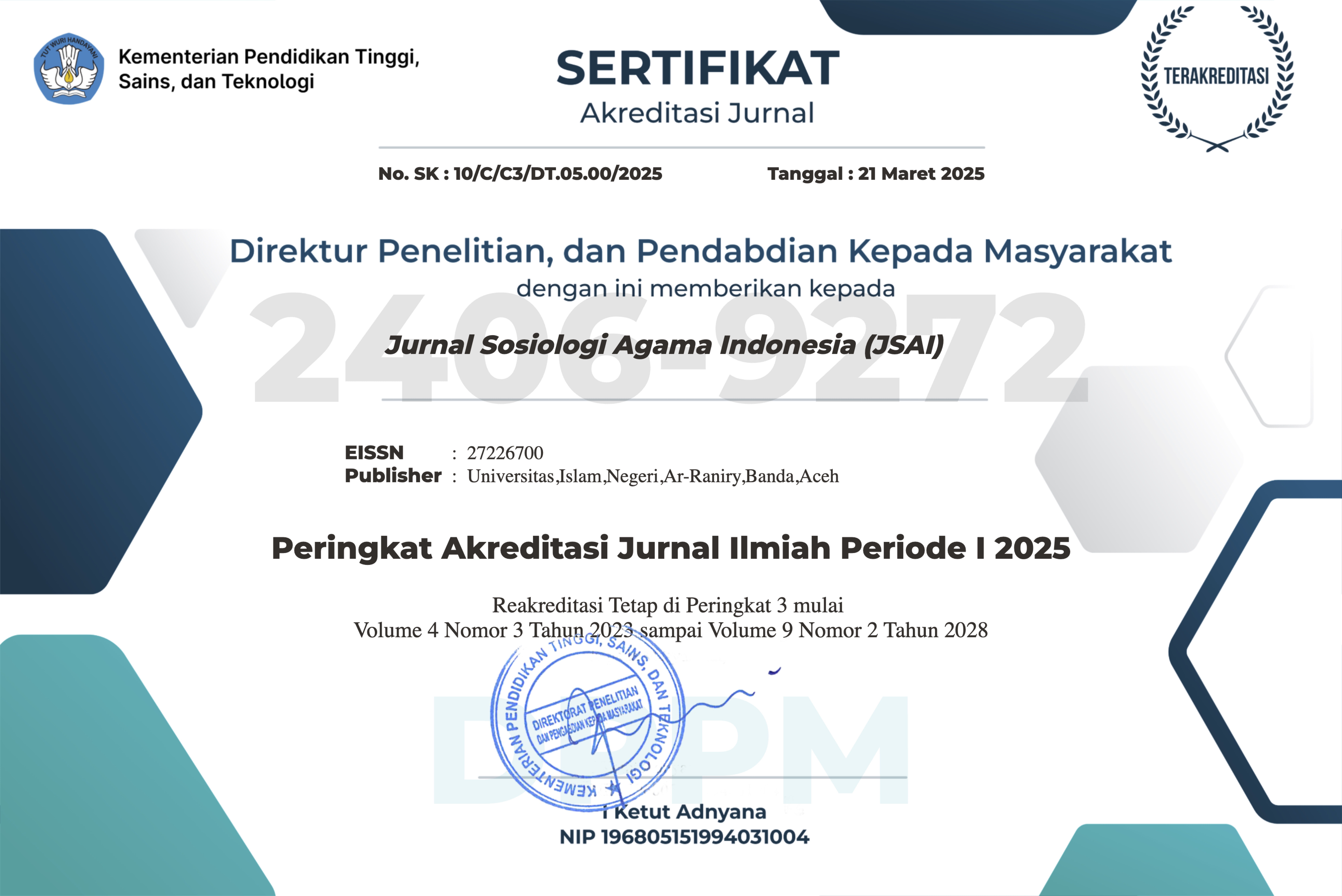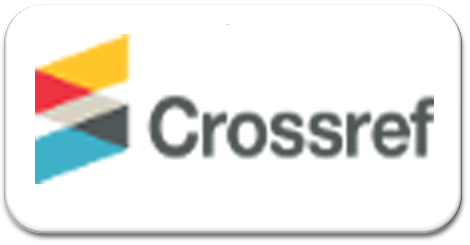Kritik terhadap Konsep Ideologi Komunisme Karl Marx
DOI:
https://doi.org/10.22373/jsai.v1i1.424Keywords:
Communism, Religion, Materialism, DialecticsAbstract
This article aims to analyse the ideological theory of communism by referring to the history of the early period of thought of Karl Marx and Frederick Engels. From a linguistic perspective, communism is a doctrine of liberating the proletariat to a classless society. In the following period, communism by Lenin, Stalin and Mao Zedong developed into a revolutionary movement and state leadership under the control of the communist party with individual cult theory. Communism has three basic concepts, namely: dialectics, historical materialism and classless. In conclusion, communism has historically evolved as a philosophy of life that emphasizes world materialism with its slogan ‘of each person according to ability, for each person as needed ‘and not just a political ideology that separates religious affairs from state affairs. So according to its nature, communism clearly denies the existence of the afterlife, even denying God in its applicative life. Therefore, the appropriate paradigm for criticizing this ideology is through a worldview approach, especially the Islamic worldview, because in this world is not only a material aspect but also a metaphysical aspect. By understanding that aspects of metaphysics, it can affect human social life, so they will better understand that God is who occupies the highest position in this nature.
References
Acikgenc, Alparslan. (1996). Islamic Science: Towards A Definition. Kuala Lumpur: ISTAC.
al-Attas, S.M.N. (1995). Prolegomena To The Metaphysics of Islam: An Explosition of The Fundamental Elements of The Worldview of Islam. Kuala Lumpur: ISTAC.
Arif, Syamsuddin. (2017). Islam dan Diabolisme Intelektual. Jakarta: INSISTS.
Berlin, Isaiah. (1963). Karl Marx: His Life and Environment. Third Edition. New York: Oxford University Press.
Blackburn, Simon. (1996). The Oxford Dictionary of Philosophy Oxford Paperback Reference. New York: Oxford University Press.
Borchert, Donald M. (ed.). (2006). Encyclopedia of Philosophy. Michigan: Thomson Gale & Mamillan Refernce.
Bottomore, Tom (ed.). (2001). A Dictionary of Marxist Thought. USA: Blackwell.
Engels, Frederick. (1925). The Little Red Library No. 3 Principles of Communism: Engels First Draft of The Communist Manifesto. Translation, Introduction and Appendix by Max Bedacht. Chicago: The Daily Worker publishing Co.
Engels, Frederick. (2004). Principles of Communism, dalam Marx-Engels Collected Work Volume 6. New York: International Publishers.
Hatta, Mohammad. (2002). Pengantar ke Jalan Ekonomi Sosiologis, Jakarta: PT. Gunung Agung.
Holmes, Leslie. (2009). Communism: A Very Short Introduction. New York: Oxford University Press.
Ishiyama, John T. & Breuning, Marijke. (2013). Ilmu Politik: Dalam Paradigma Abad ke-21. Jilid 2. Jakarta: Kencana.
Kojeve, Alexander. (1969). Introduction to the Reading of Hegel. London: Cornell University.
Kupper, Adam & Jessica Kupper (ed). (2004). The Social Science Encyclopedia Vol. 1. New York: Routledge.
Lenin, V. I. (1973). The State and Revolution. Peking: Foreign Languages Press.
Lenin, V. I. (1973). What is to be Done?. Peking: Foreign Languages Press.
Lewis, Bernard. (2003). The Crisis of Islam: Holy War and Unholy Terror. London: Weidenfeld & Nicolson.
Marx, Karl & Engels, Friedrich. (1955). Samuel H. Beer (ed.). The Communist Manifesto. New York: Appleton-Century-Crofts.
Marx, Karl. (1892). The Poverty of Philosophy. Moscow: Foreign Languages Publishing House.
Marx, Karl. (1904). A Contribution to the Critique of Political Economy. Chicago: Charles H. Kerr and Company.
Marx, Karl. (1904). Capital: A Critical Analysis of Capitalist Production. London: Swan Sonnenschein & Co., Ltd.
Marx, Karl. (1970). The Critique of the Gotha Program. Moscow: Foreign Languages Publishing House.
Mckown, Delos B. (1975). The Classical Marxist Critiques of Religion: Marx, Engels, Lenin, Kautsky. Netherlands: Martinus Nijhoff.
Morris, William (Ed.). (1996). The New International Webster’s Comprehensive Dictionary of the English Language. Florida: Trident Press International.
Re, Erik van. (2002). The Political Thought of Joseph Stalin: A Study in Twentieth-Century Revolutionary Patriotism. London: Routledge Curzon.
Resnick, Stephen A. & Wolff, Richard D. (2002). Class Theory and History: Capitalism and Communism in the USSR. New York: Routledge.
Schmandi, Hery J. (2009). Filsafat Politik terj. A History of Political Philosophy. (Ahmad Baidlowi. Trans). Yogyakarta: Pustaka Pelajar.
Sire, James W. (2009). Naming the Elephant: Worldview as a Concept. Downer Grove : InterVarsity Press Academic.
Wilczynski, J. (1981). An Encyclopedic Dictionary of Marxism, Socialism and Communism. London: The Macmillan Press Ltd.
Wood, John S. (1949). 100 Things You Should Know About Communism and Religion. Washington, D. C.: Committee on Un-American Activities, U. S. House of Representatives.
Zarkasyi, Hamid Fahmy. (2018). Kausalitas: Hukum Alam atau Tuhan. Ponorogo: UNIDA Gontor Press.
Downloads
Published
How to Cite
Issue
Section
License
- Authors retain copyright and grant the journal right of first publication with the work simultaneously licensed under an Attribution-NonCommercial-ShareAlike 4.0 International (CC BY-NC-SA 4.0) that allows others to share the work with an acknowledgment of the work's authorship and initial publication in this journal.
- Authors are able to enter into separate, additional contractual arrangements for the non-exclusive distribution of the journal's published version of the work (e.g., post it to an institutional repository or publish it in a book), with an acknowledgment of its initial publication in this journal.
- Authors are permitted and encouraged to post their work online (e.g., in institutional repositories or on their website) prior to and during the submission process, as it can lead to productive exchanges, as well as earlier and greater citation of published work.
















